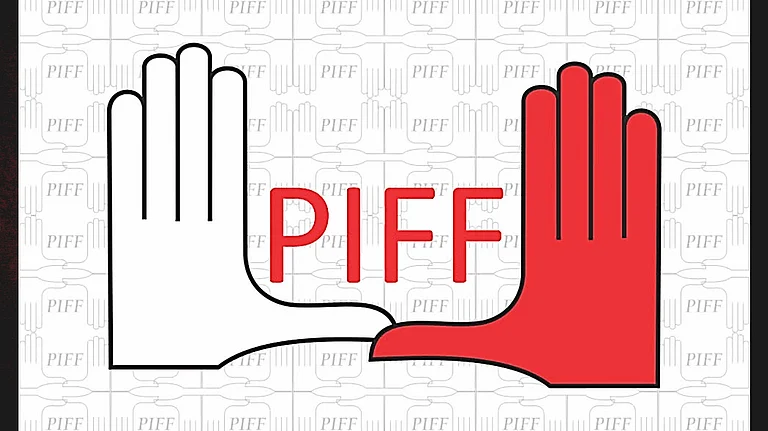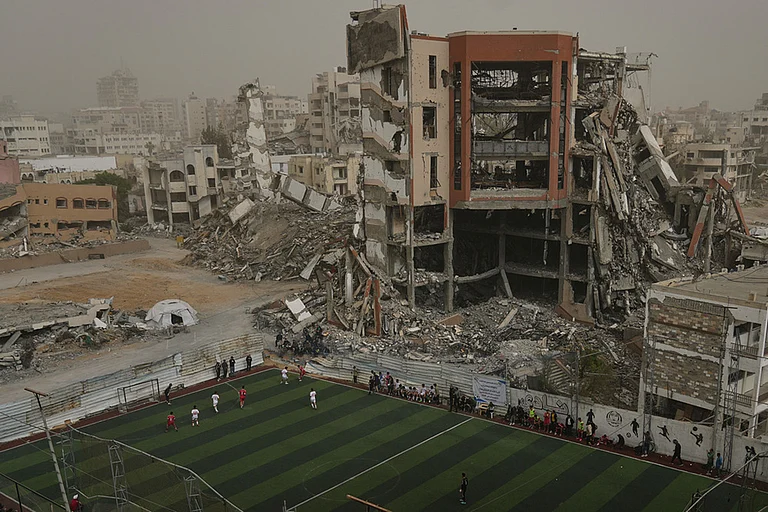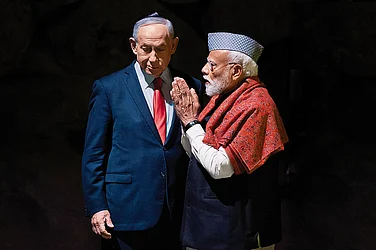“Despite the barriers—both physical and political, Palestinians cling to a tapestry of hope, woven through decades of struggle. It's the hope that sustains families separated by policies and checkpoints, the hope that powers the laughter amidst tears, and the hope that ignites the belief that one day, freedom will touch the soil of Gaza and the rest of Palestine.
My mother’s agony started before October 7, which embodies the enduring connection of people to their land and each other. Her story defies the notion that Palestinians can be neatly categorized or divided. It is a testament to the power of heritage and the deep roots of family bonds that not even the most stringent of blockades can sever. For 12 years, Israel denied her a permit to visit her family in the West Bank, even when her parents passed away in 2003 and 2008.
The Israeli occupation attempts to dilute the vibrant colours of Palestinian life, enforcing segregation and sowing division. Yet, Palestinians understand they are not simply two entities—Gaza and the West Bank—but a collective, a single entity scattered across the globe yet united in aspiration and suffering. They carry the tales of children lost to darkness, the harshness of resource scarcity, and the daily indignities of life under siege. But even as they mourn, they dream—dreams of returning, of justice, and of a better tomorrow.

These injustices are not singular stories but form part of the collective Palestinian experience—a collective that refuses to accept further ethnic cleansing or to be swayed by the false promises of a peace that remains elusive.
The resilience of Palestinians, their unshakeable faith in a just future, remind us that while colonizers may write chapters of history, they cannot dictate the ending. In the heart of every Palestinian, whether in Gaza, the West Bank, or the diaspora, beats the certainty that "our day will come." And when it does, the world will witness not the fall of a people, but their rise, their unification, and their triumph.
My Sister Passed Away Because of the Siege
The loss of my sister Zeinab due to complications from a gallbladder issue amidst the backdrop of the Israeli siege on Gaza in 2007 was devastating to my family. Zeinab's condition required a simple operation, which was impossible to obtain in Gaza because of the lack of necessary medical equipment. Efforts to secure a permit for her to receive medical care in Jerusalem were thwarted by Israeli authorities who labeled her a security threat.
With the Rafah crossing between Gaza and Egypt frequently closed due to the internal conflict between Fatah and Hamas, and the European Union's suspension of its mission, Zeinab's medical situation became dire. Once the crossing briefly opened for the last time in 2007 before the siege was officially imposed, she was able to travel to Egypt in an ambulance, but it was already too late. She passed away in Cairo, shortly after.
Her ordeal highlights the human impact of the political situation, illustrating how the siege on Gaza not only exacerbates medical emergencies but also inflicts deeper psychological wounds on those affected. The narrative underscores the sense of injustice felt by my family and the broader community, with Israeli soldiers at the crossing showing a lack of empathy for her loss. Despite my father and aunt’s encounter with the insensitive soldier, Zeinab was finally brought back to Gaza and laid to rest after two failed attempts, where they had to bring her body in an ambulance to the border between Gaza and Israel.
Seventy Per Cent of the People of Gaza are Refugees
A look at the historical and ongoing challenges faced by Palestinian refugees in Gaza in the context of Israeli policies and actions reveals that Palestinians have been suffering tremendously in what looks like a slow death since 1948. The origins of the Palestinian refugee crisis go back to the Nakba in 1948, where a significant number of Palestinians were displaced and became refugees in Gaza including my family. The majority of these refugees came from 34 towns and villages, which Israel now calls the Gaza envelope. To explain this in simpler terms, 70% of Gaza's current population lives very close to what used to be the towns and villages that is now Israel, where they are not allowed to return and live in abject poverty. Since 1967, there have been consistent efforts, both by Israel and international entities, to de-populate Gaza, which has been firmly rejected.
There were several historical attempts to move Palestinians out of Gaza, including a failed plan in the 1950s proposed by the UN agency for Palestine Refugees, UNRWA, and a secret plan by Israel in 1969 to send Palestinians to Latin America. Ariel Sharon played a role in forcibly removing Palestinians in 1971, by sending 12,000 to the Sinai.
The killings in Khan Yunis and Rafah refugee camps in the early 1950s and the massacres in 1956 by Israel speak of the same reality Palestinians live in Gaza today. It states that Israel's military actions and policies have been motivated by the view of Palestinian refugees as a threat to its existence.
In the current context of October 2023, Israel has initiated a war against Gaza and issued evacuation orders for more than a million people, framing this as a continuation of a long-standing policy to depopulate the area and push Palestinians into the Sinai. The resolve of the Palestinians in Gaza is clear, and their refusal to be displaced again as they did during the Nakba will not change.
This is despite killing some 20,030 Palestinians, and injuring 30,000, including 6,500 children and 5,500 women. As of now, 60% of Gaza’s houses have either been completely destroyed or seriously damaged due to Israel’s relentless bombing, including targeting people in the South of Gaza, as 46% of people killed by Israel were in the south. Ten members of my extended family have been killed by Israel so far after Israel dropped a bomb on them without a warning.
Despite this, we will not move. Gaza is our home.
(As told to Abhik Bhattacharya)






















